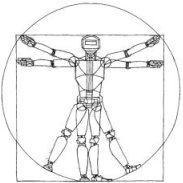Robotics: Science and Systems XVIII
MIRROR: Differentiable Deep Social Projection for Assistive Human-Robot Communication
Kaiqi Chen, Jeffrey Fong, Harold SohAbstract:
Communication is a hallmark of intelligence. In this work, we present MIRROR, an approach to (i) quickly learn human models from human demonstrations, and (ii) use the models for subsequent communication planning in assistive shared-control settings. MIRROR is inspired by social projection theory, which hypothesizes that humans use self-models to understand others. Likewise, MIRROR leverages self-models learned using reinforcement learning to bootstrap human modeling. Experiments with simulated humans show that this approach leads to rapid learning and more robust models compared to existing behavioral cloning and state-of-the-art imitation learning methods. We also present a human-subject study using the CARLA simulator which shows that (i) MIRROR is able to scale to complex domains with high-dimensional observations and complicated world physics and (ii) provides effective assistive communication that enabled participants to drive more safely in adverse weather conditions.
Bibtex:
@INPROCEEDINGS{Chen-RSS-22,
AUTHOR = {Kaiqi Chen AND Jeffrey Fong AND Harold Soh},
TITLE = {{MIRROR: Differentiable Deep Social Projection for Assistive Human-Robot Communication}},
BOOKTITLE = {Proceedings of Robotics: Science and Systems},
YEAR = {2022},
ADDRESS = {New York City, NY, USA},
MONTH = {June},
DOI = {10.15607/RSS.2022.XVIII.020}
}
